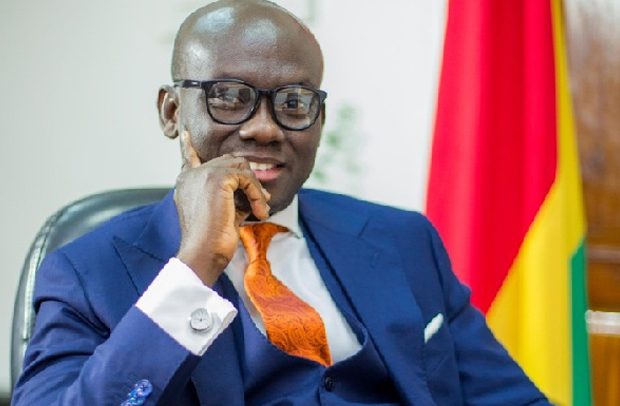Godfred Yeboah Dame
THE Attorney General and Minister of Justice, Godfred Yeboah Dame, has pledged his support for the ‘Justice For All’ programme.
He has also pledged his support for other initiatives including an introduction of the plea bargaining system to improve conditions in the country’s prisons.
According to him, this will make inmates productive in order to contribute their quota to the socio-economic development of Ghana.
Giving an address at this year’s ‘Justice for All’ programme, Mr. Dame stated, “I find this ‘Justice for All’ virtual court sitting particularly impressive and a bold initiative.”
He said virtual court sittings represented a positively unyielding and unflinching resolve to ensure that justice was not denied the underprivileged and the many remand prisoners around the country who, ordinarily, would not have their cases heard by courts of law, even in the COVID-19 era.
“Needless to say, it is another shot in the arm of the e-Justice system devised by the Judicial Service and which is made up of processes involving software and hardware which facilitate case management such as e-filing, judge rosters, case scheduling, courtroom recording systems, electronic notification system and information websites for the public,” he noted.
He added, “Today, a remand prisoner can be in the confines of where he is kept and still have his application for bail considered and granted by the court without the hustle of being moved about town to attend a hearing in a physical courtroom.”
“He can leave prison today for the comfort of his home after having a bail application heard virtually and granted,” he indicated and continued that this is the truest expression of justice for all.
For him, the Prison Service should find this particularly as a huge relief, asserting that the risks and costs associated with transferring prisoners and detainees to court have been averted by allowing testimonies and hearings to be carried out from a distance.
“The collaboration between the judiciary, office of A-G and the Prisons Service indeed deserves a lot of applause. The introduction of technology with the JFAP virtual court sitting serves as a model for best practice for other countries which have understudied and replicated the JFAP programme.”
The Attorney General underscored that the goals sought to be achieved by the JFAP programme were far from being accomplished, adding that in 2018, records from the Ghana Prisons Service Criminal Records Units indicated that the total prisoner population at the end of December 2018 stood at 14,910 as against the authorised nationwide prison capacity of 9,875.
He pointed out that this represented a 51 per cent overcrowding rate, and added that the population comprised 13,000 convicts and 1,910 pre-trial prisoners (unconvicted persons).
“The problem of congestion of our prisons and prisoners on remand for inordinately long periods remains a current phenomenon.
“The United Nations Office on Drugs and Crime (UNODC) identifies overcrowding as the root cause of many human rights violations in almost all prison systems worldwide.
“UNODC thus, supports the introduction and implementation of non-custodial sanctions and measures which reflect a fundamental change in the approach to crime, offenders and their place in society, changing the focus of penitentiary measures from punishment and isolation to restorative justice and re-integration, and offering in the long term better protection for society,” he stated.
He said it was for this reason that he considered the passage of an Alternative Sentencing Act an urgent necessity, intimating that he recently reviewed a draft Community Sentencing Bill which he charged the Director of Legislative Drafting in his office to come up with.
“The Draft Bill is going through the process of stakeholder consultations and will soon be laid before Parliament. I am treating it as one of my priority legislations this year,” he concluded.
By Ernest Kofi Adu


